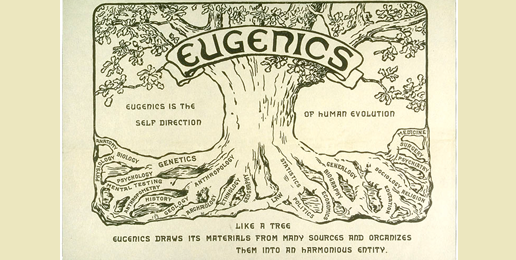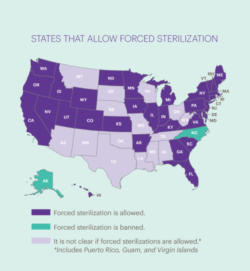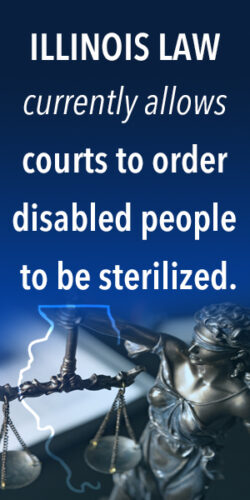
Written by Julie Tisdale
In the 1880s, Sir Francis Galton coined a new term, “eugenics.” A look at the history is shocking and horrifying because of the speed with which the ideas gained widespread support. In less than 30 years, major philanthropic organizations like the Carnegie Institute and the Rockefeller Foundation were funding the movement, states were passing forced sterilization laws, and state fairs were hosting “better baby” competitions. Even groups like the NAACP were eventually engaged in these activities. Read through the history of eugenics in America, and it seems like just about everyone was buying in.
 Of course, much has changed. Eugenics has now been rejected by the vast majority of people, and the ideas are generally considered to victimize racial minorities, the mentally ill, women, and the poor. No respectable person calls himself a eugenicist any longer.
Of course, much has changed. Eugenics has now been rejected by the vast majority of people, and the ideas are generally considered to victimize racial minorities, the mentally ill, women, and the poor. No respectable person calls himself a eugenicist any longer.
Unfortunately, that doesn’t mean that the ideas and philosophy underlying the sordid history of eugenics in America has gone. For if we define eugenics as “The study of how to arrange reproduction within a human population to increase the occurrence of heritable characteristics regarded as desirable,” then we’re forced to admit that it is still very much alive and well.
The forms have changed. Forced sterilization is no longer nearly as prevalent as it once was, and state and federal laws have been enacted to largely ban the practice. All too often, though, doctors recommend abortions for women whose babies test positive for “undesirable” traits. Genetic testing of unborn babies for a whole range of conditions is absolutely routine. And if the tests come back positive for something incurable, say Down Syndrome, the recommendation by many is that mothers abort.
The reason that many give for terminating these pregnancies is fear that the child won’t be able to reach the potential of a “normal” kid, that she may not ever be able to live fully independently, that he will be a burden to his family or society at large. And this is where we see the parallels with eugenic policies most clearly. Eugenics advocates used slogans like “Some people are born to be a burden to the rest” to argue that everyone was better off if such people were never born. It is exactly the same logic used with pregnant women today.
 That alone is bad enough. The idea that we would deem a person unworthy even of being born because of a genetic condition should deeply offend anyone who believes that all people are valuable, regardless of ability or disability, intelligence, gender, race, or age. It should horrify people of faith who believe that all people are created in the image of God and therefore possess inherent dignity.
That alone is bad enough. The idea that we would deem a person unworthy even of being born because of a genetic condition should deeply offend anyone who believes that all people are valuable, regardless of ability or disability, intelligence, gender, race, or age. It should horrify people of faith who believe that all people are created in the image of God and therefore possess inherent dignity.
But it’s even worse than that, because the tests themselves are unreliable. The Colson Center’s BreakPoint recently reported on a series of studies that show false positive rates of prenatal screenings for various genetic conditions. These false positives range from around 50 percent for Down syndrome, to as high as 90 percent for Prader-Willi syndrome. So, the end result is that many are pressuring mothers into aborting babies who don’t even have the conditions that they think they’re avoiding. These are moms who want their babies, but are convinced by an unreliable test that they’re better off aborting. What a terrible, cruel thing to do to a woman who wants a child.
Years ago, a friend of mine went in for a routine prenatal exam, and her doctor started talking about all the usual genetic tests they were planning to run. My friend stopped the doctor and asked how many of the things they were testing for were treatable in the womb. Were they able to do anything about any of these conditions? Could they, for example, do surgery to correct a heart defect before the baby was born, thereby increasing his chances of survival? The answer, of course, was that the doctor wasn’t planning to test for anything that was treatable in the womb. The only reason to even do the tests was so that the parents could decide whether or not to abort.
This sort of cultural mindset that devalues people because of their genetic traits, because their lives are unlikely to be as economically productive, because they’re likely to require more time and money to care for than their “normal” counterparts, needs to be challenged. We need to see these sorts of screenings for what they are—a new form of eugenics. Instead of falling into the trap of believing that the world is better off without “defective people,” we should remind ourselves that all human beings are fearfully and wonderfully made by God.
This article was originally published by NCFamily.org.




















